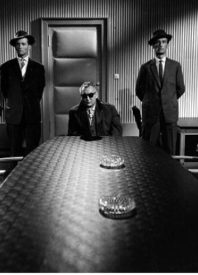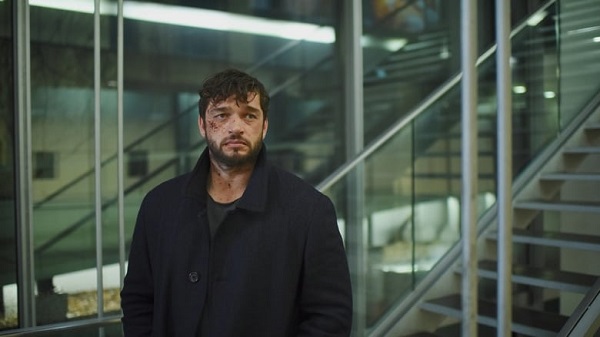
The Goethe-Institut Toronto returns with another short and sweet retrospective of films. This time around they’re calling this series The End of Truth. The series shows films that portray espionage in a German perspective. This perspective obviously differs from how American and British cinematic traditions portray espionage. Despite these films being 50 years apart from each other, there’s an adventurous element to them. They get to show spies either in glamorous hotels, in bunkers with gadgets, or in exotic locations. But as the Insitut says, these films test ‘our perception of loyalty, identity, and even reality’. After all, spies confront those ideas as they see the enemy face to face.
The Insitut also pairs these films with introductions by people with different kinds of expertise. Ron Deibert will introduce Fritz Lang’s Spies. Deibert is a professor of Political Science. His expertise is on, among many things, communication technology, which has its benefits and troubleshoots during Weimar Germany and today. The Institut, then, accompanies Janos Veiczi’s For Eyes Only in two different ways. The first is a newsreel showing life in 1960s East Germany. The second is an informal meetup with Professor Gabrielle Muller, an expert on East German memory and culture. Last but not least, there’s critic Adam Nayman, lover of both cinema and Europe. And he will do the introduction for Philipp Leinemann’s Blame Game. I trust him to do more than just gush about Ronald Zehrfeld. That’s what I’d end up doing if I was in his place.
Spies depicts agent versus agent confrontation in Weimar Germany. We can chalk up the presence of these rich spies on screen for two things. One, it’s because it’s escapist cinema. Two, it’s Lang deconstructing the idea of a downtrodden Weimar Germany. He instead presents a plausible version of a country where people of different economic and racial backgrounds intersect. The main plot, of course, revolves around German Agent 236 (Willy Fritsch). He develops feelings for Sonja Barranikowa (Gerda Maurus), a white Russian who works for sinister organization. The subplots here are plentiful, containing fascinating emotional levels.
While Spies juggles many characters, For Eyes Only just really cares about one. He’s a guy who calls himself Hansen (Alfred Muller). He’s an East German defector working for Concordia, a covert company for the CIA. But the Americans are validly suspicious of him and everyone in Concordia. They’re right to be suspicious of him because his loyalty still lies with the East. The film delights in depicting him evade his American tails. It also shows him navigating the West Berlin and its American-installed neon lights. The black and white cinematography removes the decadent glamour that the West tries to drape on top of their country.
Goethe Films: The End of Truth is a short series on German spy films. It begins on March 10 and you can catch all three films at TIFF Bell Lightbox. Click here for more information on screening times.


